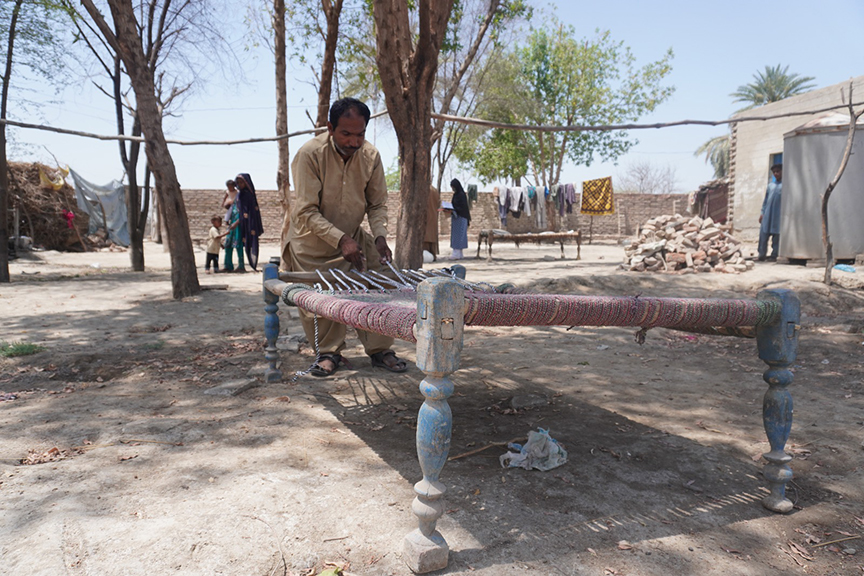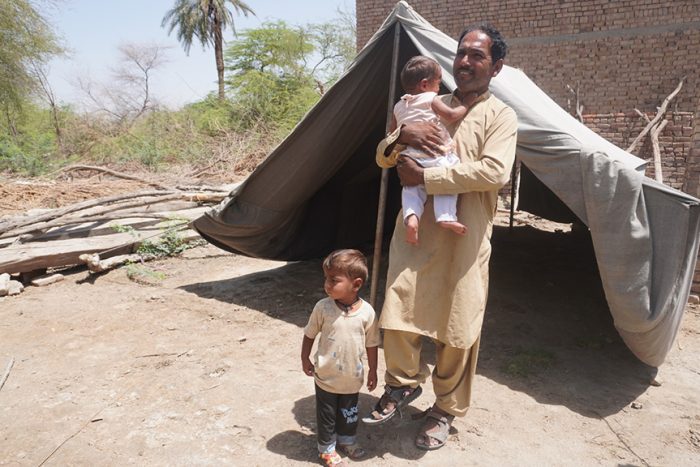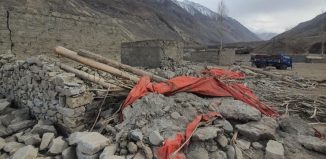Falak Sher: Never give up
As a child Falak Sher dreamt of completing high school and joining the army. That was only natural for a child physically fit who from age ten was a kabaddi player. Though a contact sport, kabaddi is non-violent involving tagging and tackling and serious injuries are rare. However, that rarity struck Falak Sher when he was about twelve and in grade 4 of primary school.
During a match, he was tackled and brought down as had happened several times before. But this time the pang of shooting pain told him something had gone terribly wrong. Though his village Mehr Veesar lay some 50 kilometres southwest of Khairpur town, there were nearby hospitals as well. But Falak Sher was carried home rather than being taken to a proper medical centre.
His family called in the local bone-setter, an untrained potter who boasted knowledge passed down to him through several generations of bone-setters. Using splints and bandages, the man claimed to have set the bone right, but when two months later the dressing was removed, the leg was deformed. For the next five years, Falak Sher was bed-ridden because of persistent pain and inability to walk without support.
For the youngster the dream of being in military uniform faded away and even education seemed to have come to an end at grade 4. Time heals all, however, even badly set bones. After a break of five years, Falak Sher was able to walk back to school with the help of a staff. Though the military career was out of the question, yet the young man continued his schooling to complete matriculation. In a society where able-bodied men with degrees sometimes spend years seeking suitable jobs, there was no opening for a matriculate with a disability.
Already in his twenty-fourth year, Falak Sher apprenticed himself to a master weaver of the charpoy, the wooden bedstead. Within a year, he was sufficiently trained to independently turn an empty frame into a proper bed in under five hours. In 2023, at age thirty-eight, he was a highly proficient charpoy weaver who got calls on his cell phone when there was work.
“Life was getting along all right and I would get three to four charpoys every day,” said Falak Sher. That was enough work to keep him busy through the day and at Rs 400 per frame, he was a satisfied man.
Then came the floods of the summer of 2022. Whole communities lost everything they had and if Falak Sher’s house collapsed, he could hardly say Nature had singled him out for punishment. Flood-affected or not, people needed furniture to sleep on and if he thought that the broken charpoy frames would be repaired and he would be called to do the weaving, he was mistaken. No one had the money even to procure food for their families, and getting their bedsteads repaired was a very distant priority.
“For four months, it was a very difficult time because there was no work. In this village and a couple of other nearby ones, there are four other weavers like me, and we were all without anything to do,” reported Falak Sher.

Like many others, Falak Sher and his family lived by the generosity of a kind landlord who provided flood-affected families with one meal a day. Those were three months when he, the sole bread winner for his family, forewent meals so that his two year-old son was fed. His wife too needed to be fed as she was nursing an infant daughter. It was a very hard time.
Slowly work began to trickle in. However, because of his disability, Falak Sher had to hire a motorbike taxi to take him to the work site. That cost money. For short trips the fare was PKR 30, but longer ones set him back by PKR 100 (Approx. USD 0.3). Unlike the old days when he would get three to five pieces to work on in a day, now there was never more than one and subtracting the fare from his wage of PKR 400 (Approx., USD 1.4) hurt. But the man never gave up and assiduously kept at it.
In January 2023, Falak Sher received the first instalment of Cash for Food from Community World Service Asia (CWSA) with the support of Presbyterian World Service & Development(PWS&) and Canadian Foodgrains Bank (CFGB). Falak Sher spent the entire sum of PKR 12,000 on the purchase of food rations. For the first time in four months, he had a square meal, said the man. The following three months were the same pattern.
Being a talented craftsman, Falak Sher had not lost hope. And that paid off for in February he worked on twelve charpoys netting PKR 4800 (Approx. USD 15). The Cash for Food aid bolstered his hope and his ability to provide for his family. With work slowly picking up pace, the man was thinking of beginning to rebuild his collapsed home.
Asked how he would have fared without the cash grant, he remained silent. He had no idea how he and his family would have survived the hard months when there was so little work to be had.







